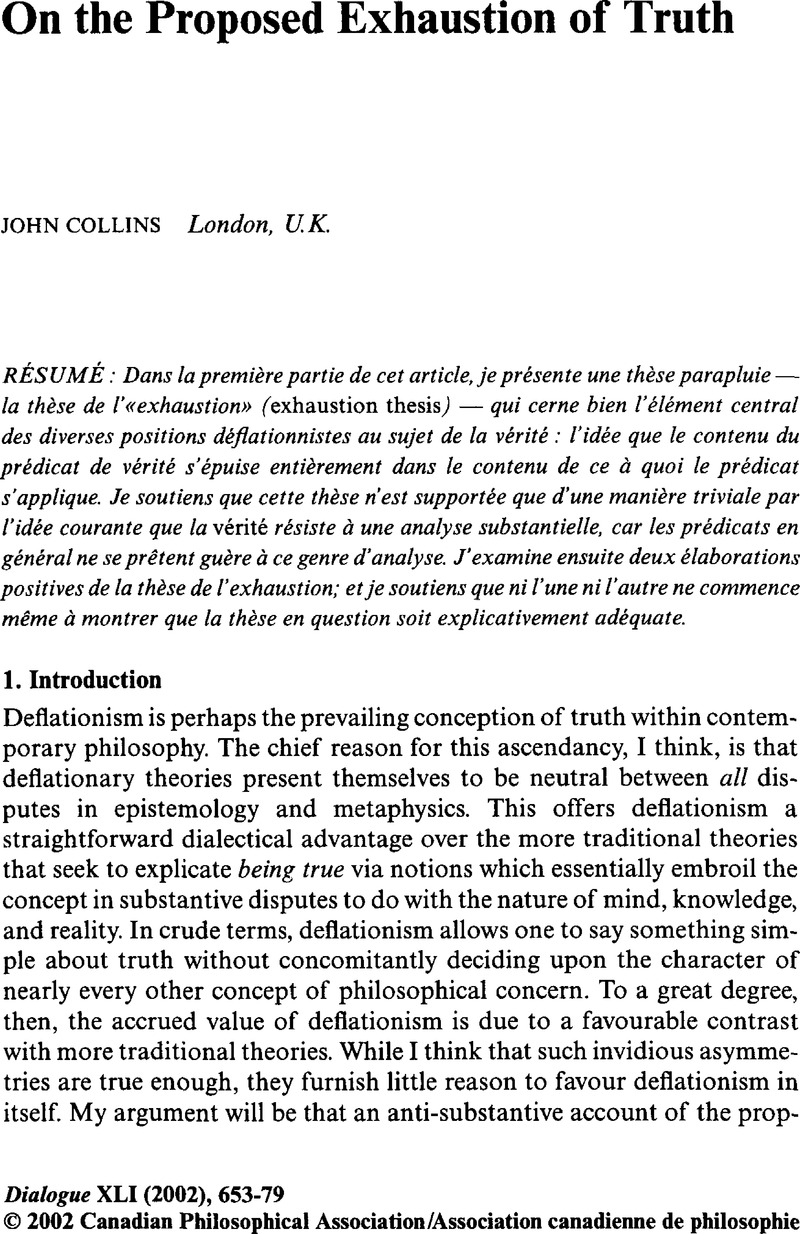Crossref Citations
This article has been cited by the following publications. This list is generated based on data provided by Crossref.
Hoffmann, Glen
2010.
The Minimalist Theory of Truth: Challenges and Concerns.
Philosophy Compass,
Vol. 5,
Issue. 10,
p.
938.



